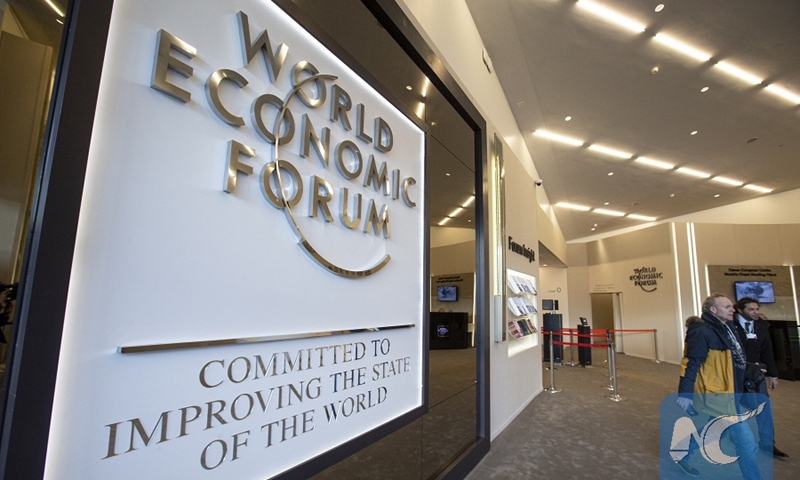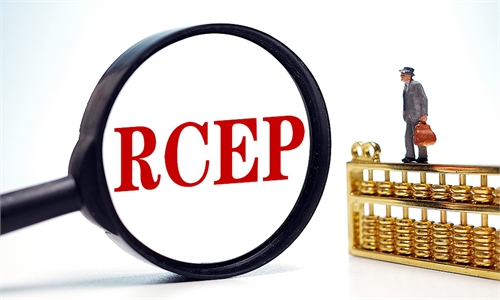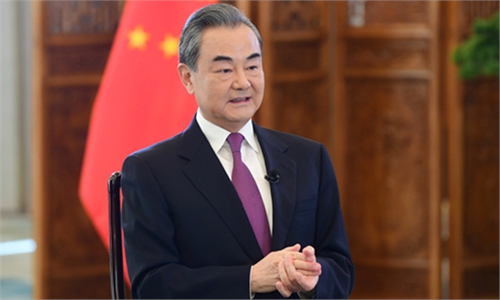
People walk by the logo of the World Economic Forum (WEF) in Davos, Switzerland, Jan. 21, 2019. The WEF Annual Meeting will kick off in Davos on Tuesday. (Xinhua/Xu Jinquan)
An Asian speaker at a Davos economic forum discussion panel called Monday for pursing multilateralism while the world struggles with COVID-19.
Tharman Shanmugaratnam, senior minister of the Government of Singapore, said at a video-linked panel themed "Restoring Economic Growth" that the priority for the future is to support multilateralism and cooperative internationalism.
"We must shore up the multilateral system. We must rebuild some forms of cooperative internationalism. Not just out of the goodness of our hearts, but out of every nation's self-interest," he said.
Following the first virtual session running from Monday to Friday, Davos will move to Singapore in May, the first time for an Asian country to hold such a conference since it was launched in 1971. The reason for the change is for health and safety, as the city-state has recorded a low number of 29 COVID-19 deaths.
Pointing out that the key lesson coming out of this pandemic crisis is significant underfunding of global public goods, Shanmugaratnam said, adding there are ample interests for cooperation on global healthcare, fight climate change, and the whole range of global public goods.
"So we have got to address that forthrightly, because it's not the last pandemic we are going to have, and it's not the last global crisis we are going to have," the Singaporean official said. "It's going to be far less costly to invest in multilateralism, in global public goods."
He Weiwen, a former senior trade official and an executive council member of the China Society for World Trade Organization Studies said Davos set a positive tone on enhancing global cooperation as it aims to promote information exchange amid the pandemic as the virus mutates fast.
East Asia would have more confidence to take the lead to achieve a global economic recovery amid the pandemic in 2021, said He.
In addition, He noted that unlike the US and some European countries, which are in the eye of the storm, countries in Southeast Asia are expanding their domestic markets with more populations. Therefore, they will achieve stable recoveries if the virus is contained quickly.
"Promoting the economic integration of East Asian economies, implementing the RCEP trade pact as soon as possible, and stabilizing the regional industrial chains will bring benefits for Asia's economic growth as a whole.
"Meanwhile, there will be a larger space for markets in other parts of the world," he told the Global Times on Monday.
He also said that countries in East Asia should not participate in ruinous actions initiated by non-regional countries. "East Asian countries should keep regional cooperation stable and avoid trouble."



